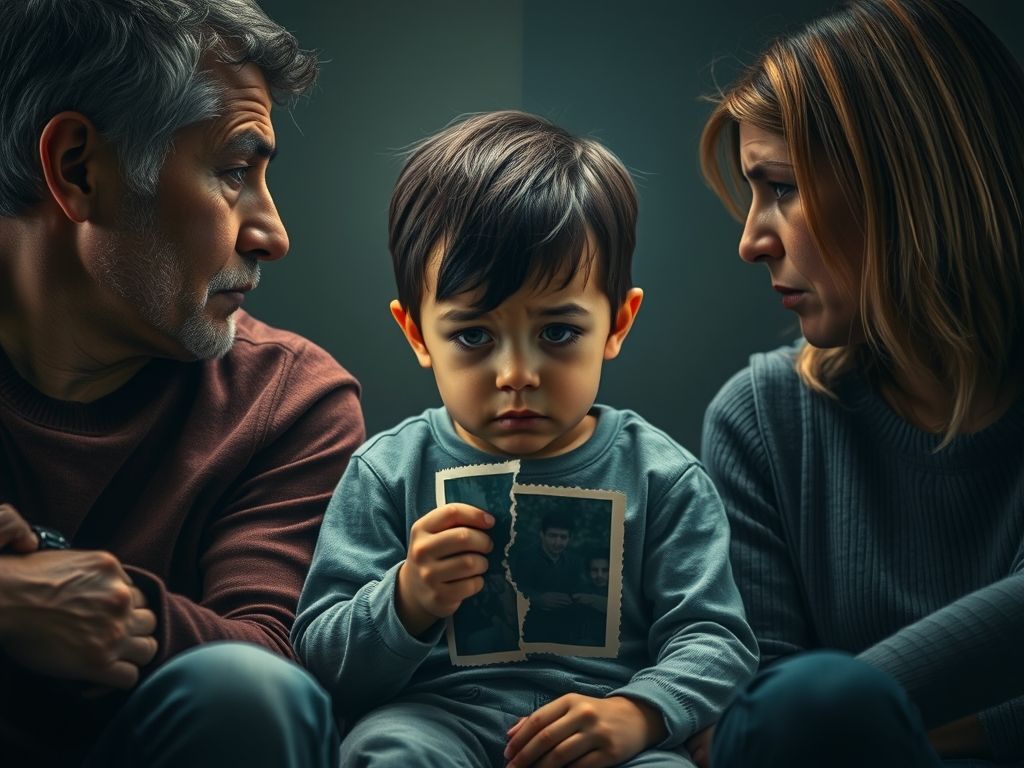Parental Conflict in Divorce: Lasting Scars on Children

Parental conflict in divorce is one of the most devastating emotional experiences a child can face. Beyond the legalities and the end of a romantic partnership, the ongoing tension between parents can shape a child’s psychological and emotional development for the rest of their life.
The Emotional Fallout for Children
Children caught in the middle of a bitter divorce often feel confused, anxious, and responsible. According to the American Psychological Association, ongoing parental conflict is one of the strongest predictors of poor emotional outcomes in children post-divorce. When parents argue in front of their kids, even about minor issues, children internalize this as emotional instability in their world.
Long-Term Impact on Mental Health
Studies show that children exposed to high levels of parental conflict during or after divorce are more likely to develop anxiety, depression, and even PTSD-like symptoms in adulthood. Research published in the Journal of Family Psychology highlights how unresolved conflict, especially when involving children as messengers or pawns, leads to emotional dysregulation and trust issues in future relationships.
Academic and Social Disruptions
Parental conflict doesn’t just affect a child’s inner world. It often translates into poor academic performance, behavioral issues, and difficulty forming peer relationships. Teachers may notice sudden drops in grades or signs of distraction and emotional outbursts. These signs are not always linked immediately to family issues but are often deeply rooted in them.
The Role of Co-Parenting
Successful co-parenting, even after separation, can mitigate much of this damage. It involves mutual respect, consistent rules across households, and open, non-hostile communication. Experts like Dr. Joan Kelly, a clinical psychologist specializing in divorce research, stress that cooperative co-parenting is the most important factor in a child’s post-divorce adjustment.
What Not to Do
Parents should avoid using the child as a therapist, messenger, or spy. Such behavior causes emotional confusion and forces children to choose sides, which no child should have to do. It also breeds resentment that can last into adulthood and damage the parent-child relationship permanently.
How to Help Children Heal
Seeking therapy for the child and even for the family unit can create a safe space for expression and healing. Creating a stable routine, validating their feelings, and reminding them consistently that they are loved and not at fault can go a long way. Sometimes, simply listening is more powerful than fixing.
Building a Better Path Forward
Healing is possible. Even if conflict has left scars, children are incredibly resilient when given love, support, and structure. Parents can create a new family dynamic rooted in empathy and emotional safety. It is never too late to rewrite the narrative. Prioritizing emotional education, mutual respect, and co-parenting with maturity can change not only a child’s present—but shape a brighter, healthier future.
Breaking the Cycle for Future Generations
One of the most overlooked aspects of parental conflict in divorce is how it plants seeds for generational trauma. Children who witness unresolved emotional battles between their parents are more likely to repeat these dynamics in their own adult relationships. It’s not just about managing conflict—it’s about modeling emotional intelligence, respect, and boundary-setting for future generations.
By committing to peaceful co-parenting, parents teach children that love and conflict can coexist healthily, and that separation doesn’t have to mean destruction. The emotional legacy of a divorce is not determined by the event itself, but by how the adults handle the aftermath. Children are always watching—and learning.
Final Thought: You Hold the Power
If you’re a parent navigating divorce, remember this: how you act matters. Your child’s emotional future is being written now. Even small decisions—how you speak about your ex, how you listen to your child’s fears—shape how they will trust, love, and relate to the world.
Parental conflict in divorce doesn’t have to leave permanent scars. With care, humility, and support, you can break cycles, rebuild trust, and help your child rise above the emotional wreckage. That’s not just possible—it’s your greatest responsibility.
Focus Keyword: parental conflict in divorce
SEO Tags: divorce, parental conflict, child psychology, co-parenting, emotional trauma, family therapy, mental health in children, impact of divorce, childhood scars, broken families

